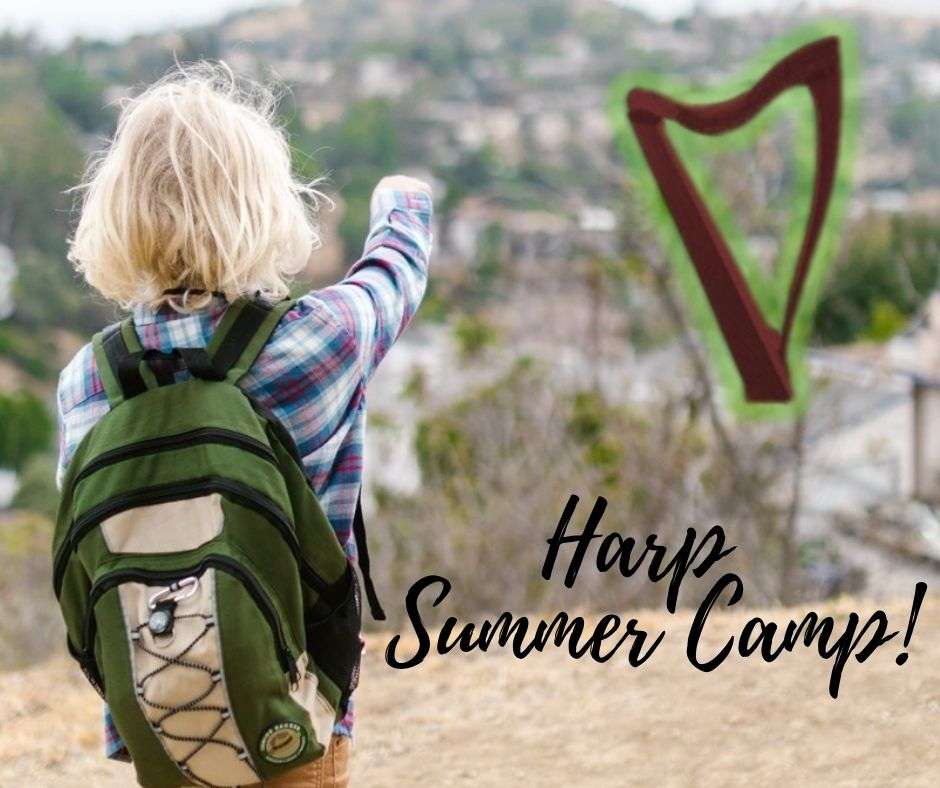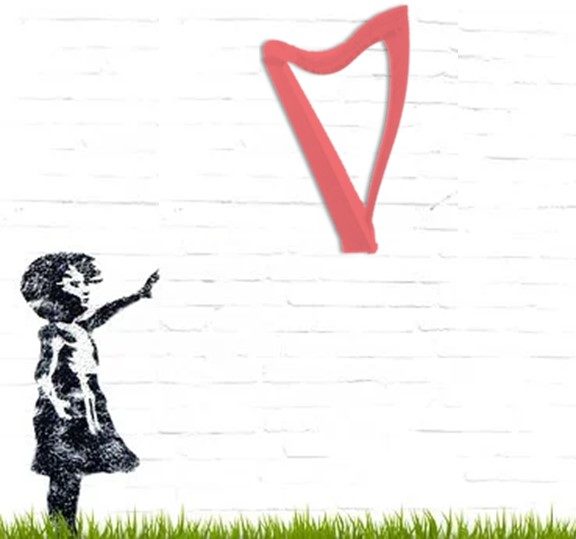I know, I know, it’s only mid-March and we’ve just turned the clocks back so it’s still dark through breakfast! But…
SUMMER IS COMING! Time for Summer Camp!
I know it seems like summer is really far away. But really, summer starts in just 99 days (when I wrote this, so even fewer by the time you read it!). So, if we want to be ready, we should start planning now.
 There are a lot of summer programs available. You can tailor your planning to your type of playing. I have some real favorites and I’d like to encourage you to join me at all or some of them!! These are all adult friendly, beginner friendly, and well, just friendly! Here’s a chronological list:
There are a lot of summer programs available. You can tailor your planning to your type of playing. I have some real favorites and I’d like to encourage you to join me at all or some of them!! These are all adult friendly, beginner friendly, and well, just friendly! Here’s a chronological list:
The 41st Edinburgh International Harp Festival, 8 – 11 April 2022. Ok, not strictly summer, but… This year has a hybrid program so you can participate in classes and workshops, attend concerts all from the comfort of your home computer or you can be there in person! This is very exciting because so many of us have wanted to go and have now had our appetites whetted with two years online but with travel still a bit snarled, this is a great option for those of us who don’t live in the UK. There are a number of exciting presenters and the concerts are fab – even if you are watching on your computer. The events are available online during the Festival and on demand afterward. The price is very reasonable – and a la carte! All the info is available at harpfestival.co.uk
Ohio Scottish Arts School, Saturday, June 25 – Friday, July 1, 2022. Aaahhhhh – to me, OSAS is the quintessential Harp Summer Camp! This year OSAS is breaking in a new venue – with Air Conditioning!! Woohoo! An entire week of great in-person instruction, wonderful tunes, amazing people, and Scottish music coming out your pores! I liked Scottish music before I came the first time, but I LOVED it by the end of my first week. I think the best sales pitch for OSAS is the number of students who have come year after year after year – both adults and kids (and adults who started as kids!). This year’s instructors are Corrina Hewat, Sharon Knowles, Seumas Gagne, and me. Registration has started and will close when the class fills so don’t wait. For those of you who have come in the past (or specifically haven’t come) – I’ll highlight – AirCon! All the details at ohioscottishartsschool.com
Somerset Harp Festival 21 – 24 July (in person and 1 July – 31 October online). Somerset is possibly the most flexible event I’ve seen – even in this new world of working! There are in person events, online events and subsequent events that will occur throughout the open online period! There are options to fit every schedule whether you can travel or not. And there are still the additional events like Harpers’ Escape and special add-on workshops. Be sure to read the registration page and sign up for the best fit for you. I’m excited to be teaching two workshops this summer in person and I hope you’ll come see me! All you need to know is here: somersetharpfest.com
There are loads of other summer programs as well. I can’t list them all here. Many are pedal-y-er and oriented to younger harp players (by which I mean kids). Most are listed in the Harp Column with info available here: harpcolumn.com/summer-harp-camp-directory
If you have never come to a harp summer camp, you have missed out! I can’t tell you how much you will learn, but you’ll definitely learn a load of great music, applied theory, excellent arrangements, and what a great community the harp world is. If you are hesitant, give yourself a little push and give it a try. I think you’ll be surprised – and delighted!
Are you going to a harp camp this summer? Which one(s)? What made you choose it? What did I leave out? Let me know in the comments!

